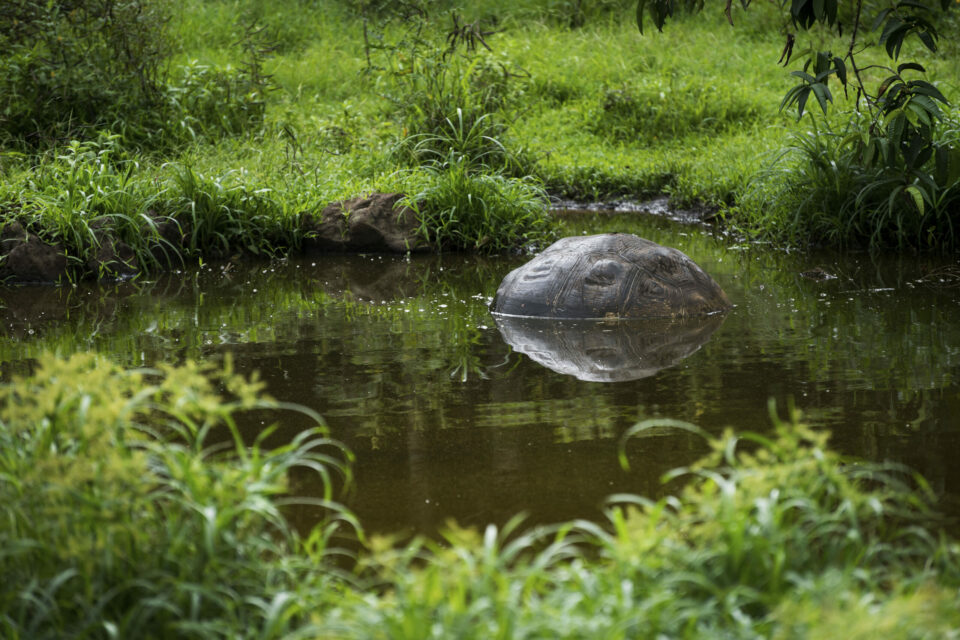

Connecting with Nature and Education in the UK – Project Updates
Our partners at the Galapagos Science Center have worked hard to continue delivering the Connecting with Nature programme, with community engagement more important than ever during the pandemic.
When Galapagos was in lockdown from March until June, all conservation field activities and outreach sessions were put on hold. As researchers begin to go back out into the field, education and outreach continues to be disrupted by limits on the number of people that can meet. At a time of economic disruption due to reduced tourism on the Islands, one concern expressed by officials was that people might turn to illegal fishing or poaching. As a result, local engagement with Galapagos’ incredible wildlife has never been more important.
Connecting with Nature
Our partners at the Galapagos Science Center (GSC) have worked incredibly hard to continue delivering the Connecting with Nature programme. This far-reaching project aims to engage young people and their families with local wildlife to develop stronger conservation and sustainability values. Under the constraints of social distancing, much of the programme has been converted to digital formats.
One notable success has been the continuation of the monthly family science events. These events are comprised of a set of activities and games to engage the community with different species, especially the Galapagos marine species. In spite of the challenges of the COVID-19 outbreak, 300 people took part in virtual family events on San Cristobal. Through various formats, including webinars, videos, photographs and games, the team has taught local people about the GSC’s science and research on turtles, marine iguanas and plastics.
Using similar technology, this time in the format of a virtual billboard to play videos, games, and show photographs and maps, the team was able to deliver its fifth Shark Day event. As in previous years, the focus was on educating local young people about the importance of sharks within the marine ecosystem, as well as the threats they face. Initial analysis suggests that over 100 people were engaged with this year’s virtual event.
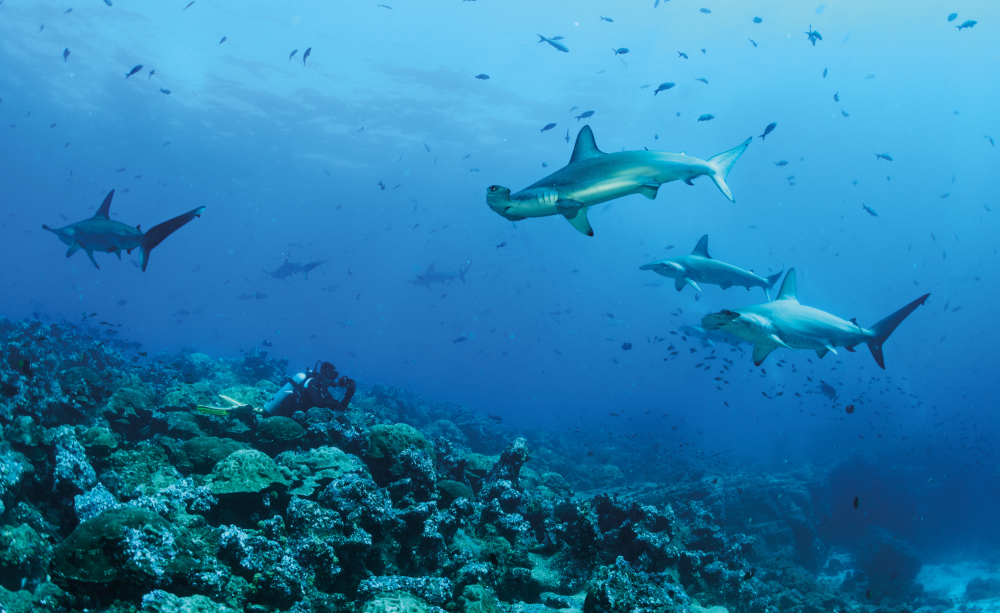
Shark Day celebrates the wonders of the Galapagos Marine Reserve and its incredible diversity of shark species and their importance in a balanced ecosystem © Simon Pierce
While Galapagos schools resumed in June, teachers and their students are still adjusting to virtual lessons. The team has worked hard to make their planned school sessions accessible. GCT has adapted and translated teaching resources including our home learning activities, to meet local needs for delivery by local partners including GSC and Charles Darwin Foundation. So far, GSC have used these resources to deliver four courses of lessons with schools groups, and hope to run a further six for a total of 250 participants in the coming months.
Education in the UK
Here in the UK, our Education Writer and primary school teacher, Sarah Langford, has developed a collaborative course, titled Exploring Evolution. With funding from the Evolution Education Trust and working alongside the Darwin Correspondence Project and the University of Bath, the course addresses a general lack of confidence and understanding in the teaching of evolution in schools. The team created tailor-made courses primarily for trainee teachers of KS2 and KS3 children. The course consist of consisting of live discussions, short films, classroom tasks and downloadable teaching resources.
Having been delivered ‘face to face’ for two years, the team has now developed online versions that have received high praise so far. Here is some feedback from PGCE secondary science students at Homerton College, University of Cambridge from our session in June 2020:
I will definitely use these resources to teach evolution, there is a nice combination of subject fields being used, it is explained clearly and allows misconceptions to be addressed.
This really reassured me as I will be teaching at a school with a religious character. I feel better equipped to tackle the seemingly controversial issues discussed here.
I feel more confident about the basic ideas of natural selection now – this was most helped by the misconceptions task
If you are a teacher and are interested in the course, visit the Exploring Evolution website here.
In has been a challenging year for everyone, especially parents and guardians who suddenly faced the potentially daunting prospect of home schooling. As part of our education and outreach work, and with further support from the Evolution Education Trust, we developed two sets of learning resources to make this a bit easier. The first set is inspired by our Galapagos Storybook, following the incredible migration of a scalloped hammerhead shark named Marti on route to Cocos Island, Costa Rica. The second set is based on our work to make Galapagos plastic-pollution free once again, and helps children learn how this pressing issue is impacting marine life.
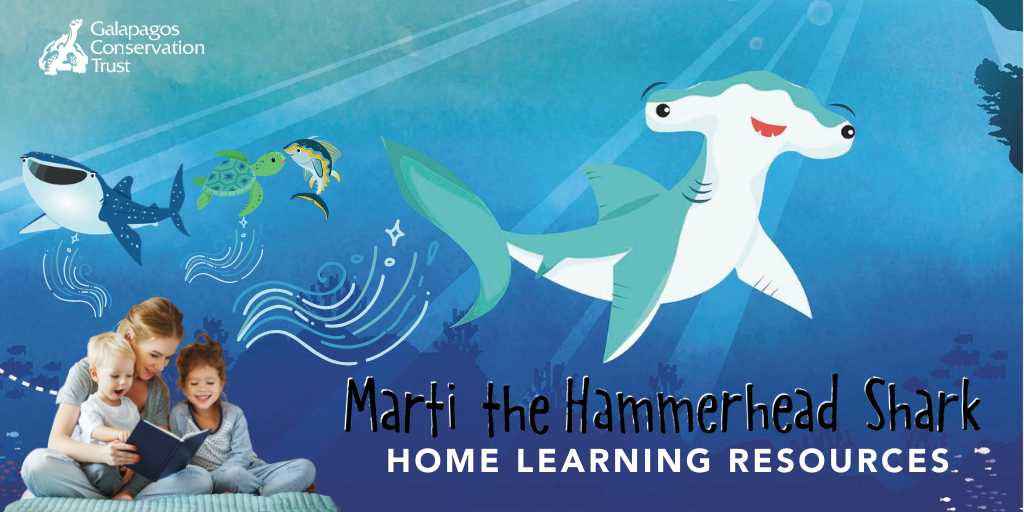
Using our Galapagos Storybook for inspiration, we have produced a range of home learning resources revolving around the Galapagos Marine Reserve
GCT and our partners have worked incredibly hard to adapt quickly to this unique set of circumstances to continue engaging people with Galapagos and its unique wildlife. Ultimately this is helping us achieve our goal to instil stronger conservation and sustainability values in people in Galapagos and the UK.
How you can help
Please support the programme and help us continue to inspire even more young people across the Galapagos Islands by . Alternatively, why not become a GCT member for as little as £3 a month and continue to support projects like this and many others.
Related articles

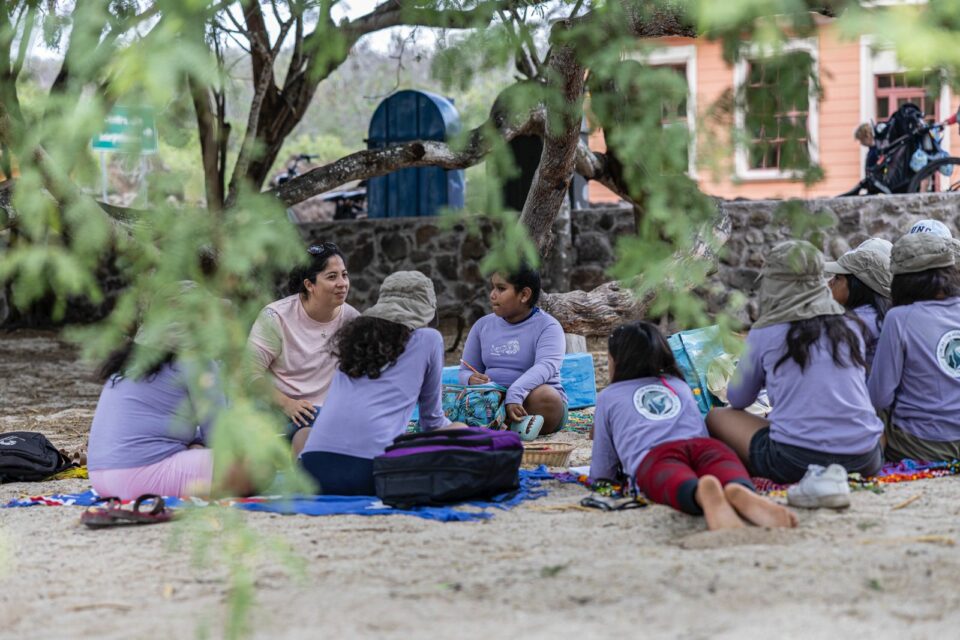
Gills Club: Empowering young women in Galapagos
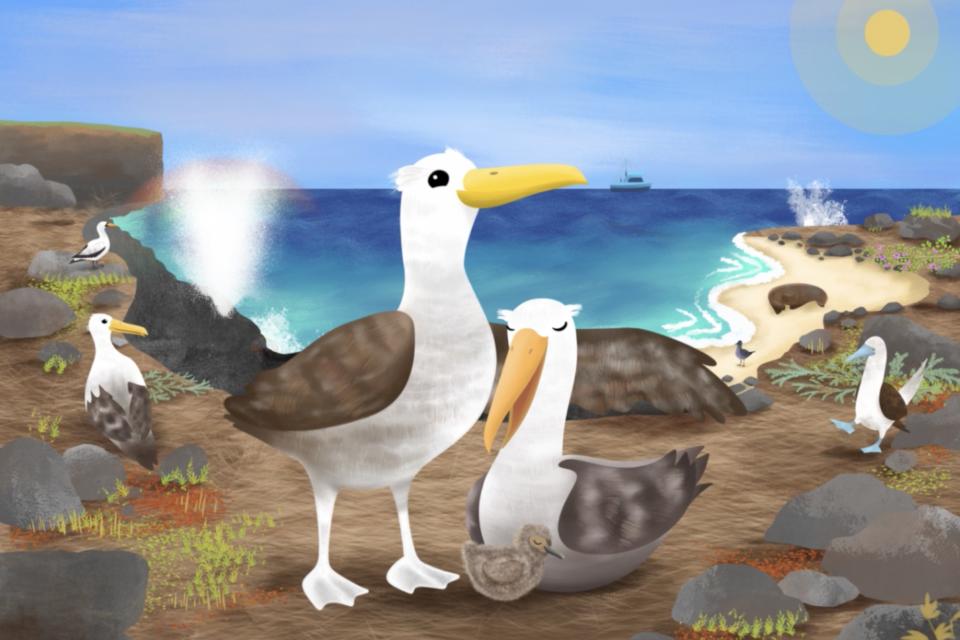
Meet the woman who brought Alberto the Waved Albatross to life


